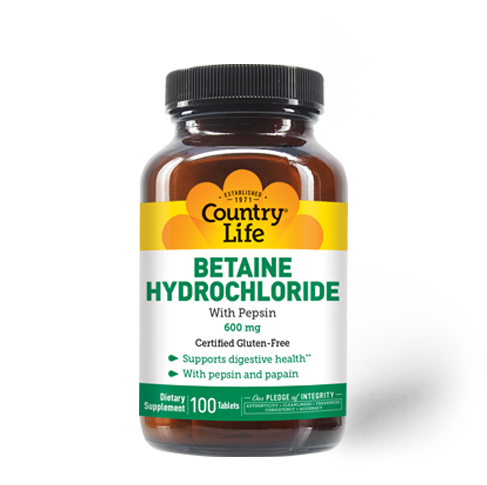Discover the Trick to Food Digestion and Resistance With Digestive Tract Health And Wellness Support

Recognizing Gut Wellness
Understanding digestive tract wellness is vital for overall wellness, as it plays a substantial role in food digestion, resistance, and even mental wellness. The gut, making up the stomach tract, is accountable for damaging down food, soaking up nutrients, and removing waste. A balanced intestine setting guarantees effective food digestion, permitting the body to utilize nutrients successfully.
In addition, gut health considerably affects the body immune system. The intestine houses a substantial portion of the body's immune cells, and a healthy digestive tract can assist repel virus and lower inflammation. Disruptions in gut health can result in an overactive immune reaction, potentially contributing to autoimmune conditions and allergies.
Furthermore, the digestive tract is typically referred to as the "second mind" due to the gut-brain axis, a complex interaction network connecting the mind and the digestive tract. This link influences mood, cognition, and emotional well-being. Issues such as dysbiosis, characterized by an inequality in intestine microorganisms, have actually been connected with mental health conditions, including stress and anxiety and anxiety.
The Digestive Tract Microbiome Explained

The intestine microbiome, a varied area of bacteria living in the stomach tract, plays a crucial duty in preserving gastrointestinal health and total wellness. Comprising trillions of microorganisms, viruses, fungi, and various other microbes, this facility environment aids in the food digestion of food, the synthesis of necessary nutrients, and the policy of metabolic procedures.
Each person's gut microbiome is one-of-a-kind, influenced by variables such as diet plan, lifestyle, genes, and ecological exposures. A well balanced microbiome supports optimum digestion by damaging down complex carbs, producing short-chain fats, and helping with the absorption of nutrients. Alternatively, a discrepancy, often referred to as dysbiosis, can bring about digestion problems, including short-tempered bowel syndrome (IBS) and inflammatory digestive tract disease (IBD)
Research study has shown that a diverse microbiome is related to far better health results, emphasizing the significance of nutritional selections in nurturing these bacteria. Foods abundant in fiber, probiotics, and prebiotics, such as fruits, veggies, and fermented products, can promote a healthy and balanced microbiome. Recognizing the gut microbiome is vital for creating targeted treatments focused on enhancing digestion wellness and preventing intestinal illness.

Connection Between Food Digestion and Immunity
A durable link exists between food digestion and resistance, highlighting the important duty of the digestive tract in keeping overall health and wellness. The stomach tract is home to trillions of bacteria that create the gut microbiome, which substantially affects both gastrointestinal procedures and immune responses. This complicated ecological community help in breaking down food, taking in nutrients, and offering necessary metabolites that support immune function.
When digestion is efficient, the digestive tract obstacle stays undamaged, protecting against unsafe microorganisms from entering the blood stream. Approximately 70% of the immune system stays in the gut-associated lymphoid cells (GALT), which engages very closely with the intestine microbiome.
Tips for Sustaining Digestive Tract Wellness
Sustaining digestive tract health is important for preserving both digestive effectiveness and a well-functioning body immune system. To foster optimal intestine wellness, take into consideration incorporating several practical methods right into your day-to-day routine.
First, focus on hydration. Drinking sufficient water sustains food digestion and helps look what i found preserve the mucosal cellular lining of the intestines. In addition, regular physical activity can boost digestive tract mobility and advertise a varied microbiome.
Conscious eating methods are also crucial. Chewing food extensively and eating gradually can assist digestion and avoid over-eating, which may worry the digestive tract. Taking care of stress and anxiety via methods such as reflection, yoga exercise, or deep-breathing workouts can favorably influence gut health and wellness, as stress and anxiety is recognized to disrupt digestive system processes.
Including prebiotics and probiotics right into your program is another efficient approach. While specific foods will be talked about later on, recognizing the relevance of these parts is critical. Prebiotics function as food for valuable digestive tract bacteria, while probiotics present online valuable organisms.
Last but not least, prevent extreme use of prescription antibiotics, as they can disrupt the balance of gut flora. By following these pointers, you can substantially add to the maintenance of a healthy digestive tract, which is essential for overall health and wellness and vigor.
Foods That Promote Digestive Tract Wellness

Fermented foods, such as yogurt, kimchi, sauerkraut, and kefir, are abundant in probiotics, which are useful microorganisms that support digestive tract flora and improve digestion. These foods can help bring back equilibrium in the gut, especially after antibiotic use or digestion disruptions.
Along with fermented choices, prebiotic foods, such as garlic, onions, asparagus, and bananas, offer as sustenance for these probiotics, advertising their growth and activity. These soluble content fibers support gut motility and can relieve issues like constipation.
Furthermore, including high-fiber foods, including whole grains, fruits, beans, and veggies, is vital for maintaining a healthy intestine. Fiber help in normal defecation and assists prevent digestive system problems.
Finally, omega-3 fats located in fatty fish, flaxseeds, and walnuts have anti-inflammatory residential or commercial properties that can further sustain gut health. Stressing these foods in your diet regimen can lead to a durable digestion system and enhanced immune function.
Final Thought
In verdict, focusing on digestive tract click to find out more wellness is important for enhancing food digestion and improving resistance. A balanced digestive tract microbiome, influenced by nutritional options and way of life aspects, plays an essential function in nutrient absorption and swelling reduction.
Understanding intestine health is vital for overall well-being, as it plays a significant role in digestion, resistance, and also psychological health. The digestive tract houses a considerable part of the body's immune cells, and a healthy and balanced digestive tract can help fend off pathogens and reduce inflammation.Furthermore, the gut is frequently referred to as the "second mind" due to the gut-brain axis, an intricate interaction network linking the gut and the brain.A robust link exists in between digestion and resistance, highlighting the critical duty of the intestine in maintaining overall wellness.In final thought, prioritizing digestive tract health is essential for maximizing food digestion and enhancing resistance.